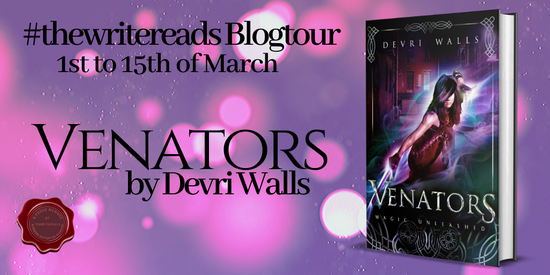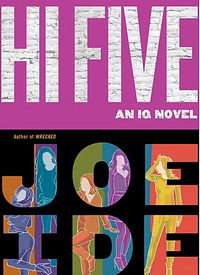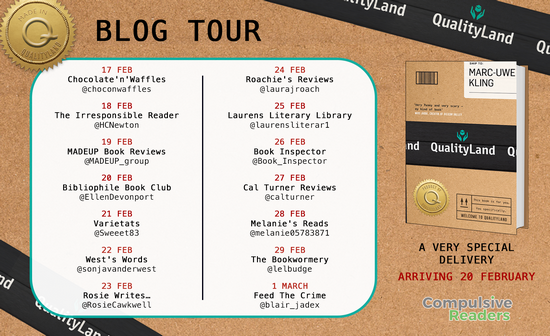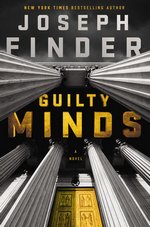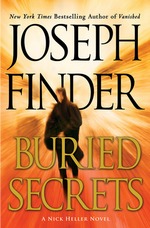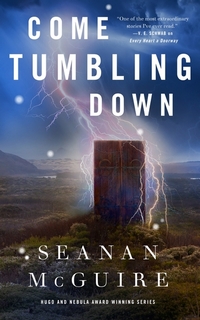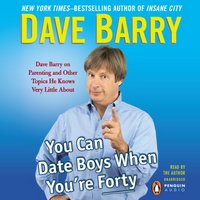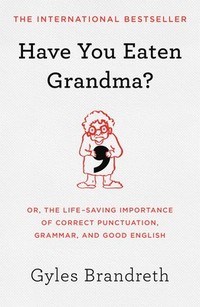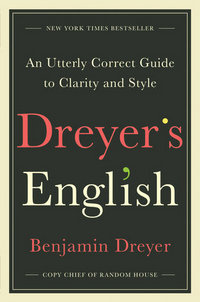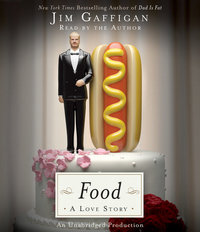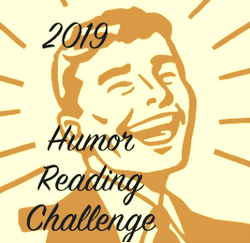 |
Venators: Magic Unleashedby Devri Walls, Daniel Thomas May (Narrator) Unabridged Audiobook, 10 hrs., 20 mins. Read: February 26-27, 2020 |

When I saw that The Write Reads was doing one of their Ultimate Blog Tours for this book, I jumped to volunteer without thinking—sure, I’d be more than happy to help Walls promote her book. Shortly after I committed, however, I started to have second thoughts. What on earth, am I going to be able to say? I talked about the first edition of the novel back in ’16 and then again with the second, retitled, and improved edition last year. How is it possible to do anything but rehash what I’d said before? Then, Walls announced that an audiobook edition was going to be released. Phew.
If you remember what I said about the post last year*, you can skip the next seven paragraphs, because I’m going to basically plagiarize myself for a bit until I talk about Daniel Thomas May’s work.
* No, I can’t imagine anyone does, I didn’t. It’s just a joke.
This is a portal fantasy about a world called Eon, populated by humans, elves, vampires, werewolves, elves, dragons, etc. There are connections between Earth and Eon, allowing travel between the two—although they’re not as strong as they once were. It turns out some humans from Earth have a certain invulnerability to the kinds of magic employed by the various races (like a werewolf or vampire bite, but not, say, an invulnerability to a werewolf tearing off their head). Thee humans also have other enhanced physical attributes allowing them to go toe-to-toe in combat with members of these races. Which has made these humans a powerful force for good, and a potentially tyrannical force as well. Eon’s known more of the latter lately, which has led to a lack of recruitment.
But now, society’s on the verge of collapse into chaos, warring tribes trying to wipe out other races in a fight for dominance, and the end of law. So some people have taken it upon themselves to reintroduce these humans, Venators, to Eon. Enter Tate, a warrior who is convinced that Venators are the key to Eon’s survival—he’s been to Earth before, and now returns to bring back some people he observed then. Six years ago, he encountered a young teen named Grey Malteer—who was forever changed by their brief encounter. Now in college, Grey is about as well-read in the lore of the supernatural and weird as is possible for someone to be while stuck on Earth and not being known as a crackpot (although he’s regarded as pretty eccentric, probably well on his way to crack-pot status).
An acquaintance of his from childhood, now attending the same college, Rune Jenkins is repulsed by the same things that Grey is focused on (while also drawn to them). Rune is totally unprepared to accept that the supernatural is anything but wild fiction until she’s attacked by goblins and rescued by a large blue man (the aforementioned Tate). Which really can only make her a believer—or drive her to some sort of psychotic break. Thankfully, she goes with the former. Tate brings Rune and Grey into Eon and sets before them the calling of Venator.
To oversimplify things: from here out, the two are introduced to this world, the beings that populate it, the political realities that govern it (and see them only as pawns), and they begin to embrace their new identities, while engaging in a brief battle or two. While Rune and Grey are introduced to all this, so is the reader—and it’s clearly the point of this book—to bring the reader and these two into Eon, give us all a taste of what’s to come and help us get to know the players. There is a clear plotline and definite story here—don’t get me wrong—but the major function is to provide a foundation for things to come.
The book would have to be a lot longer to serve as anything other than an introduction—the ruling council alone is made up of enough characters we’d need a few more chapters to really get to know them and their goals—although they can be summed up in lust for power and influence for themselves and their race to the possible detriment of every other council member/race. Then you throw in Tate; his allies (however temporary) the vampire Veridia and the shapeshifter Beltran; the two humans; and the council’s enemy, Zio—and really, you’ve got enough players that you really can only skim the surface within 354 pages.
We get to know Grey and Rune enough to see they’re well-developed and three-dimensional, and many of the rest show signs of being that developed, but we don’t get to see that fully displayed—but we see enough to know that given the opportunity, the characters will be easily fleshed out. One thing I noted in particular while reading this is just how many seeds Walls planted in the characters and situations to come back to in future installments. This foundation is built in such a way that several books can be built on it—it’s really impressive to note.
Yes, this is written for the YA market, so there’s a bit more action than others might use. There’s a focus on certain kinds of emotional beats, and that sort of thing. But it’s more of an accent to the storytelling than other writers would’ve made it. For some reason, Mercedes Lackey’s Hunter series and Brandon Mull’s Beyonders Trilogy come to mind as I think about similar series—but the YA-ness of both of those comes through more strongly than it does with this book.
So, how does this translate into audio? Very well. I’ll admit that it took me a while to get into May’s narration. For some reason, I’d expected a female narrator—someone like Kathleen McInerney, Khristine Hvam, or Lorelei King—so May threw me a little. Which isn’t a reflection on him, just on my preconceived notions. And I thought the initial chapters were a little rough—it seems like it took him a bit to “get into” the bok. But I think that’s a characteristic of the novel itself, it doesn’t really take off until the humans leave Earth.
Once there, the book—and the narration—settle in. The Venators find a sense of calm on Eon that they’ve been denied on Earth, and it’s May captures that—but what really sealed the deal for me was his portrayal of the vampire Verida—it sounded like he had extra long teeth that he had to talk through. From there, it was smooth sailing. Tashara and Beltran were a couple of the other highlights—most of the Council were captured well, also. I’m not suggesting that he didn’t do a fine job with Tate, Grey or Rune—it’s just those others seemed a bit more interesting (and Tate’s accent seemed to wander around awhile before becoming consistent).
May narrates with a good energy, a nice pace, and shows the text to be what it is—very approachable. I had no problem sticking with him and didn’t want to speed up the narration or skip ahead or anything else. He captures the tone of the book, the emotions of the moments, and the characters. All in all, it’s exactly what you want in an audiobook.
On this tour, we were encouraged to ask Devri Walls a question as part of our posts, so here’s the one that kept coming to me while I listened: Why are the Venators immune to Vampire Bites, Werewolf Bites, but not at all immune to succubi, incubi, [Book 2 Spoilery things]? I have a theory, but I’d like to hear it from the horse’s mouth (if for no other reason than my theory is probably wrong).
I ended up rating it a little higher this time—I’m not sure if it’s because I’m more familiar with the material so I can appreciate the little things more, if it was May’s narration, me just being in a generous mood, or what. Or it’s just me being inconsistent. Eh, whatever. It’s a fun little story. It is a foundation-setting kind of story, introducing the world, the magic system, the fantasy races, and many characters, so we don’t get too deep with anything. But now that things are established, the path is clear for more subtle, more layered storytelling to come.
In Print (electronic or paper) or on Audiobook, this is a solid YA fantasy that’s sure to please. Go get it for your own enjoyment and so TPTB continue to let her produce these books.

This post contains an affiliate link. If you purchase from it, I will get a small commission at no additional cost to you. As always, opinions are my own.
My thanks to The Write Reads for the invitation to participate in this tour and the materials they provided.



